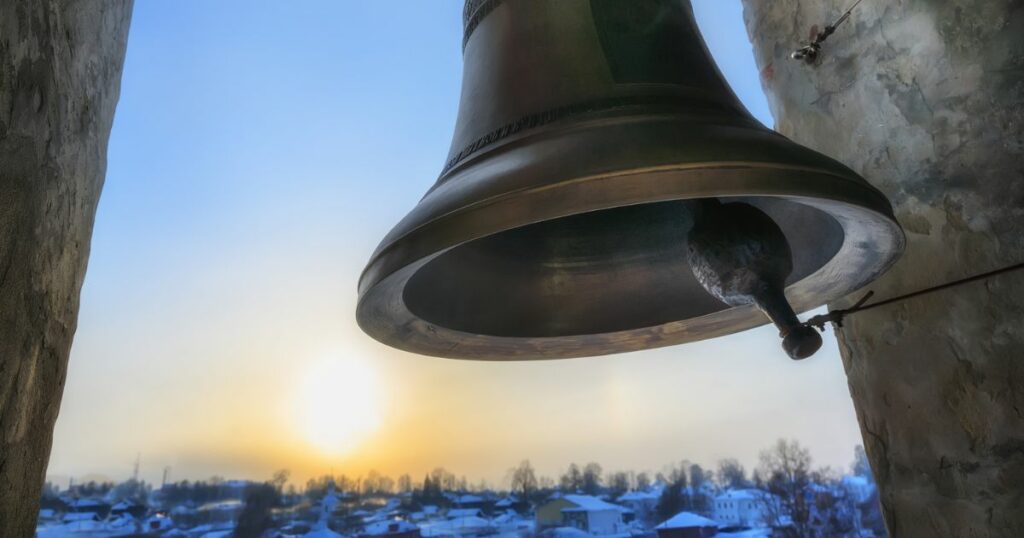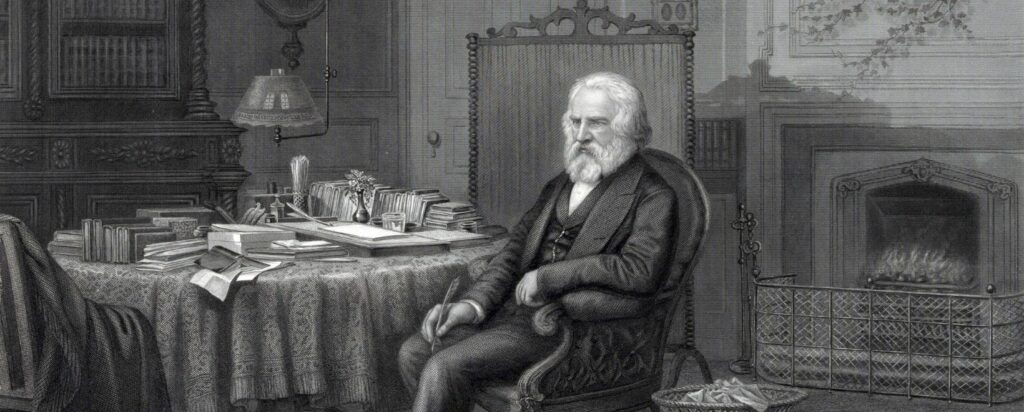Christmas Bells—A Message of Hope
from the “Pastor’s Notes” series by Pastor Bob Vradenburgh

I heard the bells on Christmas day
Henry W. Longfellow, “I Heard the Bells on Christmas Day”
Their old familiar carols play,
And wild and sweet the words repeat
Of peace of earth, good will to men.
Much of the world’s greatest hymnody and poetry has been more therapeutic for the writer who penned the words than for those who continue to read them decades later. Such is the case with the famous poet Henry Wadsworth Longfellow and his classic Christmas carol “I Heard the Bells on Christmas Day,” originally titled “Christmas Bells.”
During the course of its five stanzas (originally seven), the poet—like the psalmist three millennia before him—worked through the low-hanging clouds of his grief until he emerged into the meridian daylight of a triumphant faith.
A strong argument can indeed be made for the adage: “Poets are born, not made.”
Henry grew up in a home that nurtured his love for poetry. His parents Stephen and Zilpah had eight children. He was the second oldest. All eight remembered their birth order by a poem they were taught.
Stephen and Henry
Elizabeth and Anne
Alex and Mary
Ellen and Sam.
Henry published his first poem at age thirteen. It was signed simply Henry. However, he overheard his father telling a friend how “terrible” the poem was. Even though young Henry was devastated, he did not abandon his literary aspirations!
Henry imbibed more than just a love for poetry from his parents. Their Puritan faith in God was passed on to him, and it profoundly shaped his life. Yet it was not as strict as it was loving.
Years later that faith in Christ would sustain him in hours of deep sorrow. In the depths of his unimaginable grief, Longfellow’s pen etched a journey from personal despair to resolute hope.

Longfellow lost two wives under tragic circumstances. He courted his first wife Mary for seven years, but had only been married to her for four years when she died while miscarrying their child. He remained single for several years and then married Fannie, with whom he had six children.
While together in their Massachusetts home in 1861, Fannie’s dress caught fire. Waking from his nap, Henry tried to smother the flames first with a rug and then with his own body. He was unsuccessful in his attempts to save his beloved wife, and she died the next morning. He sustained such serious burns on his face that he was unable to attend her funeral. Longfellow never shaved again and grew a beard that became associated with his image.
For a time his deep grief caused him to totter on the brink of insanity.
Not quite two years later, Henry received word that his oldest son Charles, serving in the Union Army, had been seriously injured. He rushed to Charles’ side and was relieved to learn that the gunshot wound was not life-threatening, though it required months of healing. Charles was spared permanent paralysis by less than an inch.
Christmas Day, 1863
On Christmas Day, 1863, the 57-year-old widowed father of six children—the oldest of whom had just narrowly escaped death—arose to the sound of Christmas bells from the nearby Cambridge church. Longfellow was overcome by the pathos, irony, and dissonance of it all, so he sat down to capture his thoughts in poetry.
And in despair I bowed my head:
“There is no peace on earth,” I said,
“For hate is strong, and mocks the song
Of peace on earth, good will to men.”
The bells and singing of “peace on earth” seemed to be utterly mocked by the hate and injustice in the world, which he knew only too well.
Two of the original stanzas captured the ongoing tragedy of the Civil War. He was forced to probe his faith and hope to the bottom until it gave him the solid answer that God was neither dead nor apathetic, and that ultimately “the wrong shall fail, and the right prevail.”
Then pealed the bells more loud and deep:
“God is not dead, nor doth He sleep;
The wrong shall fail, the right prevail,
With peace on earth, good will to men.”
The message of the angels that first Christmas night still echoes through the mysteries of providence over the centuries “peace on earth, good will to men.”
Pastor Vradenburgh plays “I Heard the Bells on Christmas Day.”
Merry Christmas!
And there were in the same country shepherds abiding in the field, keeping watch over their flock by night. And, lo, the angel of the Lord came upon them, and the glory of the Lord shone round about them: and they were sore afraid. And the angel said unto them,
Fear not: for, behold, I bring you good tidings of great joy, which shall be to all people. For unto you is born this day in the city of David a Savior, which is Christ the Lord. And this shall be a sign unto you; Ye shall find the babe wrapped in swaddling clothes, lying in a manger.
And suddenly there was with the angel a multitude of the heavenly host praising God, and saying, Glory to God in the highest, and on earth peace, good will toward men.
Luke 2:8-14
